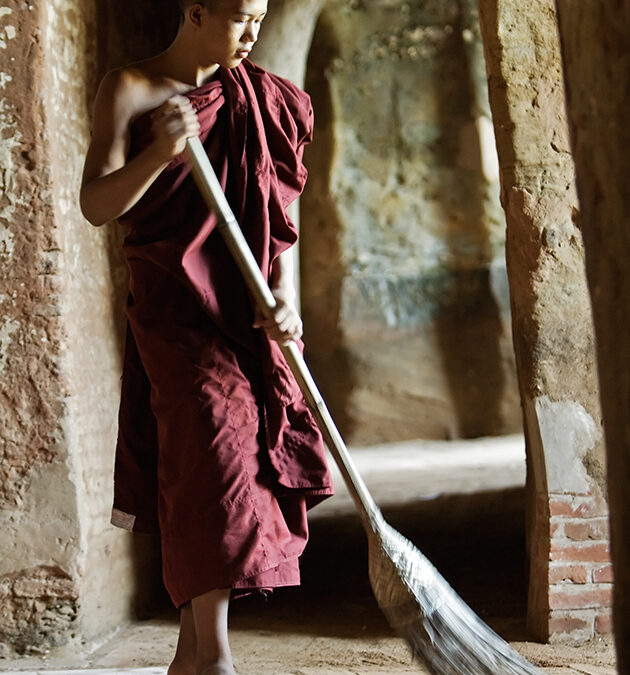By using our willpower we can tune into divine grace and accept the opportunities it provides us. This is not an instant thing. We have to persevere and have patience. It’s a lifelong pursuit, much like the following story in which Tibetan monks meditate as they build a monastery floor.
[Excerpt from the book “Tibetan Voices”] We built the floors of the monastery from scratch. Since there was no cement in Tibet, we used a material called arka, which is similar to crushed stone or gravel. It made very beautiful floors. We pounded this material with a tool consisting of a long pole and a heavy stone attached to the bottom end. The monks would form a line and sing as they pummeled the many stones into a solid floor, working to the rhythm of the song.
This was hard work; the big stones were broken up to make smaller ones, and then layers of these stones were pounded into the floor, slowly going from bigger stones to smaller and smaller. Remaining holes were filled by pounding in the finest material. Then a powdery form of the stone was put on top and this was also hammered into the floor, using water to help the binding.
Once the floor was pounded so it was smooth and level, we would get down on our knees and use big flat slabs of stone to polish the surface. Water was sprinkled onto the floor as we polished and worked our way from one end of the room to the other. The muddy result of all this effort was wiped away with cloths. Slowly, the beauty of the floor would begin to come out. Finally, a mixture of boiled oil and tree resin, the type used in making incense offerings, was applied. Cement was never used in the construction of Tibetan monasteries, and the finished quality of the buildings was far superior to any that could have been made of cement.
Slowly, the beauty of the Pure Self, the Christ light within each of us can shine forth, after lifetimes of desire and effort. This is the power of patience.

